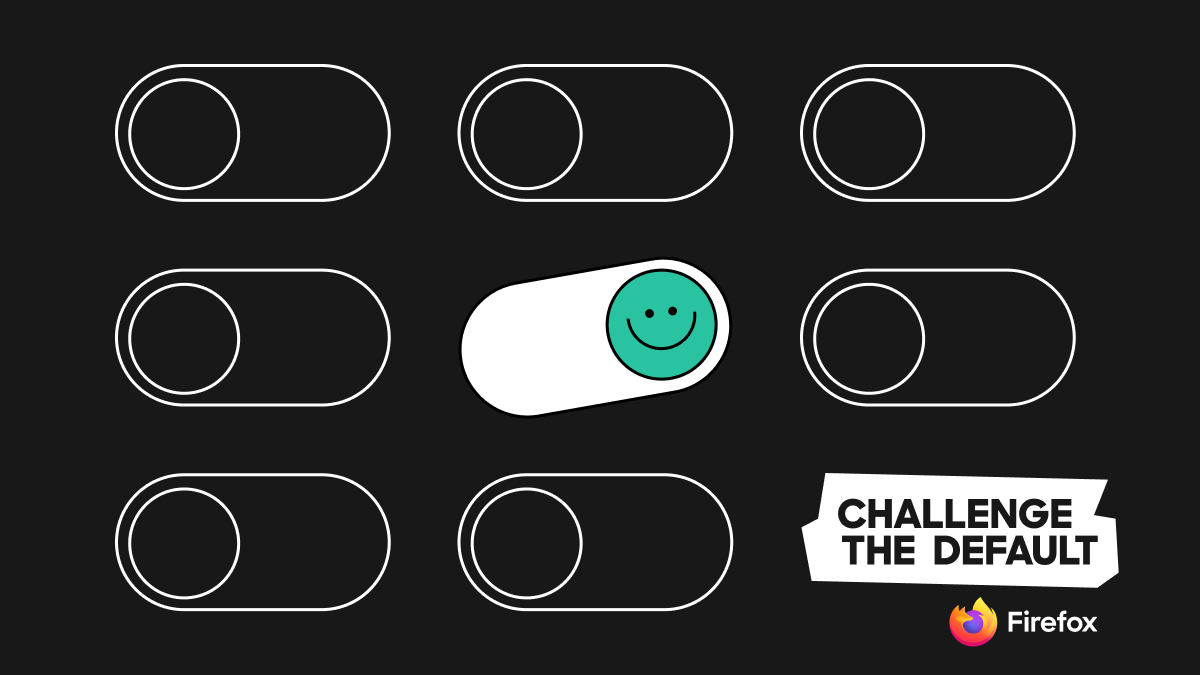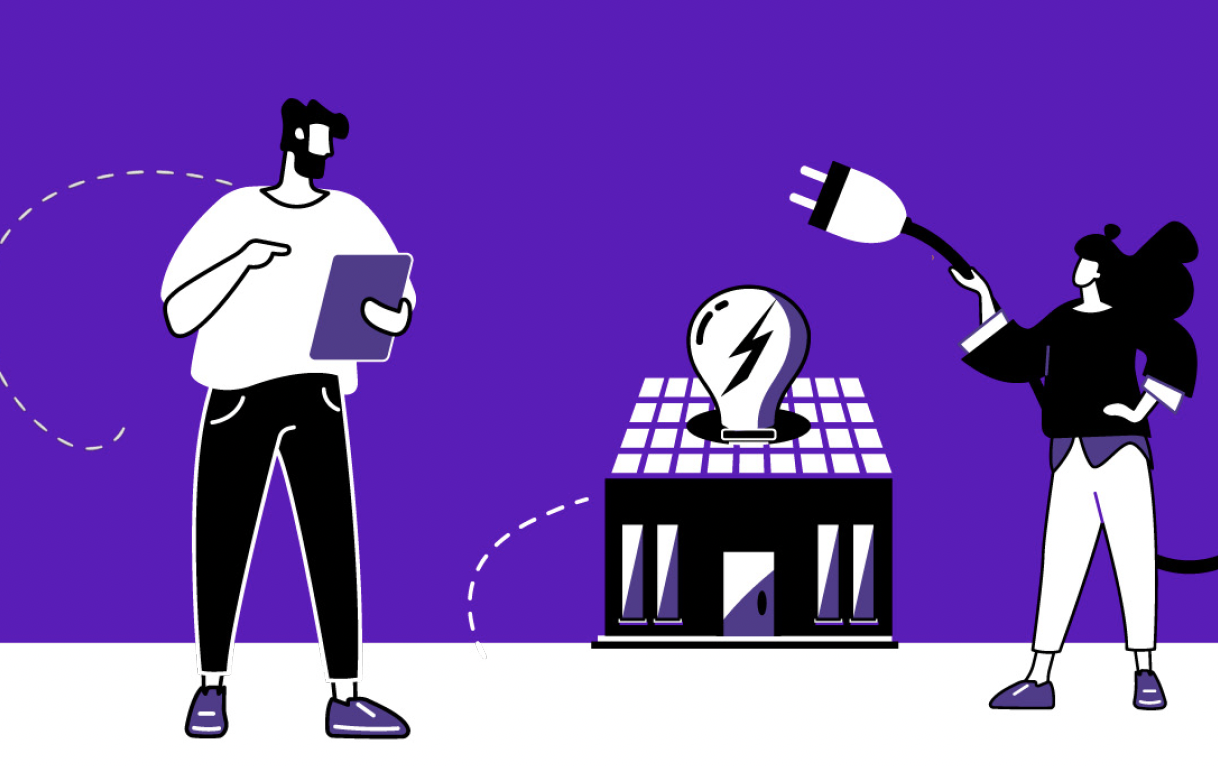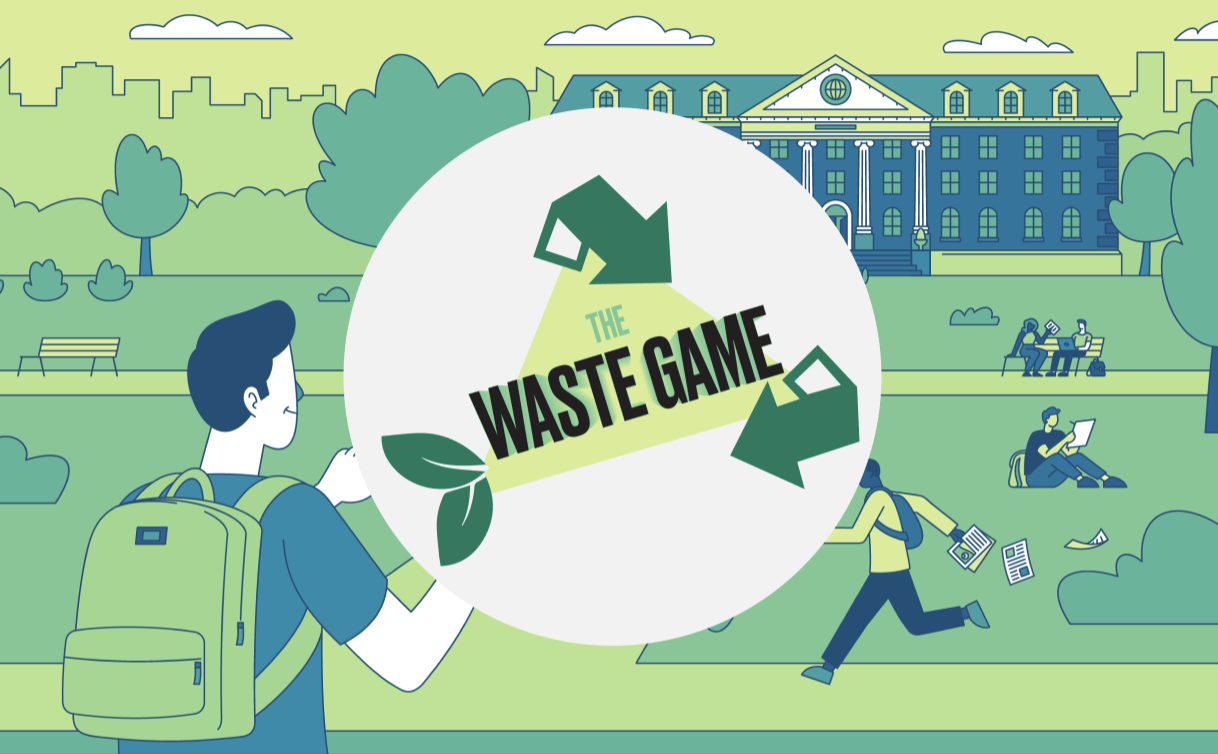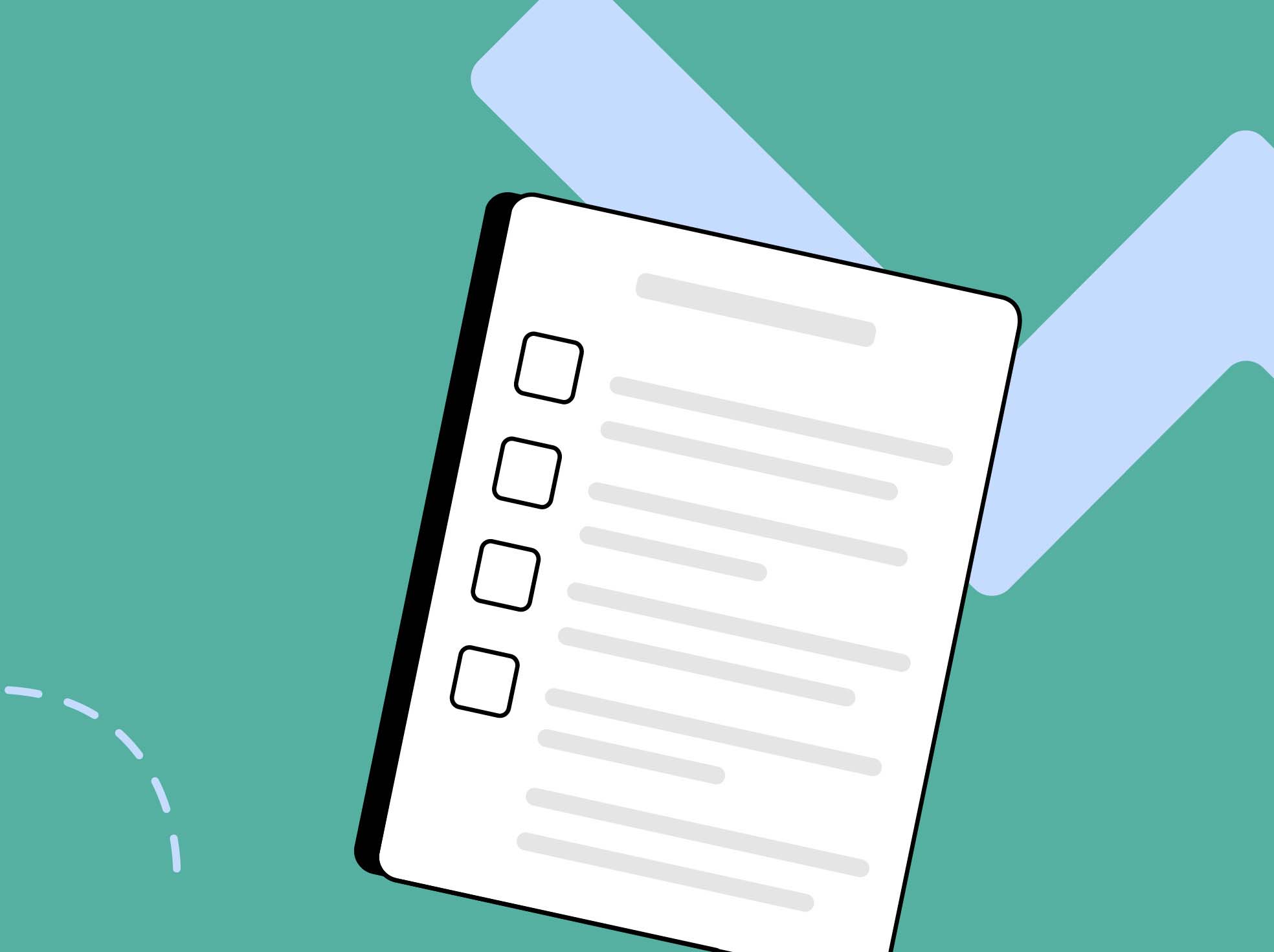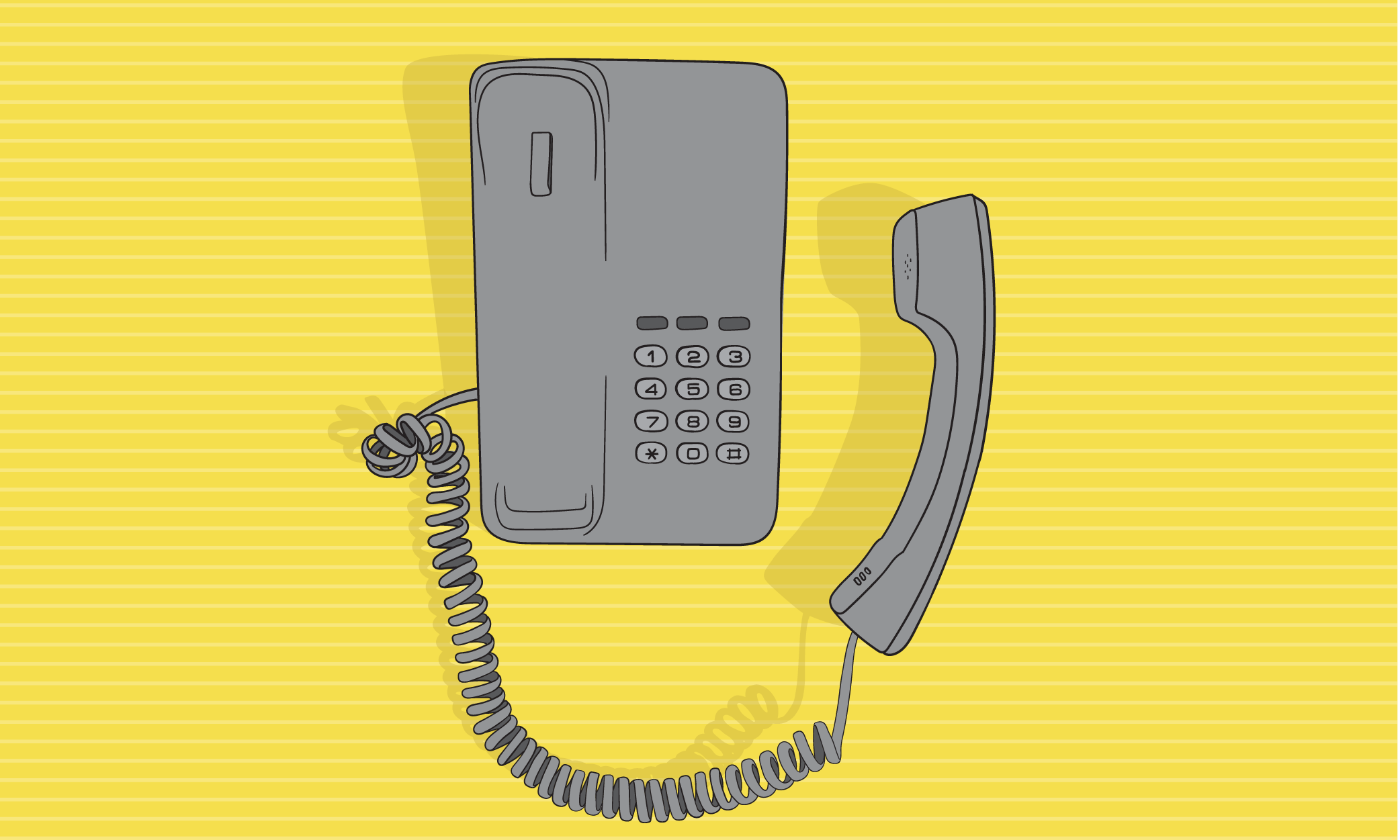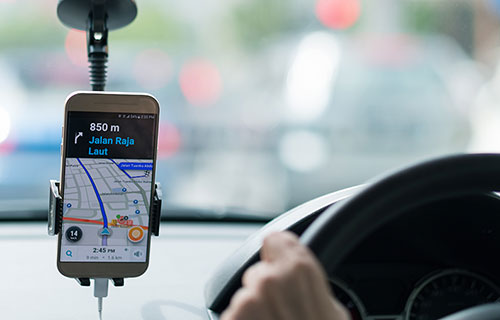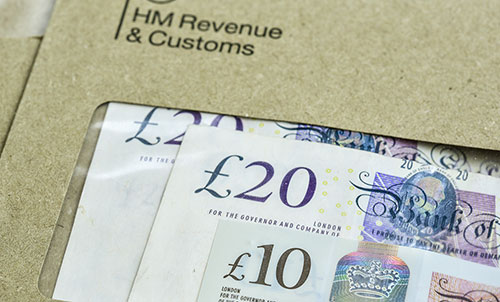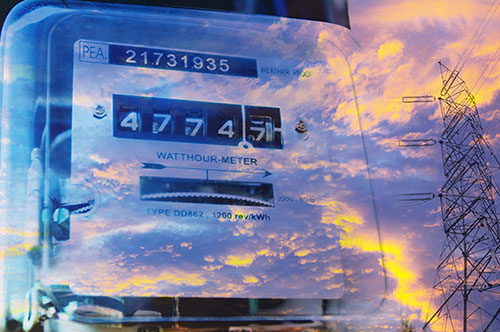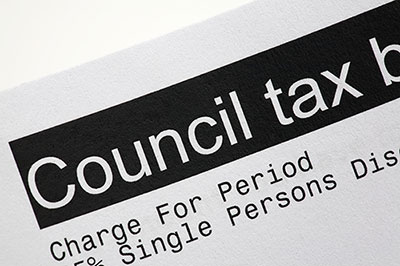Utilities
Designing an online energy toolkit for effective policymaking using behavioural insights
2022
PARTNERS
International Energy Agency (IEA)
Share
We developed an online toolkit to help policymakers better understand the behavioural assumptions underlying different demand-side energy policy instruments and improve the effectiveness of their policies.
To reduce consumer demand for non-renewable energy, policymakers have various instruments at their disposal including laws, financial incentives, service design, and communication campaigns. These policy instruments are, however, subject to several behavioural assumptions that can hamper policy effectiveness if not properly addressed.
In light of this challenge, we worked with the International Energy Agency (IEA) to develop a behavioural energy policy toolkit. The toolkit aims to help policymakers better understand the behavioural assumptions of their policy instruments and learn how to apply behavioural insights to demand-side energy policies to improve their effectiveness.
Identifying the behavioural assumptions underlying energy policy instruments
Demand-side energy policies can fall short of achieving the desired outcomes if they are not designed around realistic assumptions of human psychology and behaviour. We began this project with an extensive literature review to develop a list of behavioural assumptions of different energy policy approaches (e.g., bans and regulations, incentives and sanctions, information provision, service provision and environmental restructuring). Through the review, we identified more than 50 behavioural challenges that can negatively impact the effectiveness of different demand-side energy policies. We then consulted with behavioural policy experts to identify the set of behavioural challenges to include in the toolkit.
To ensure the toolkit is accessible and user-friendly for policymakers and other practitioners, we decided to format it as an online tool rather than as a standard report. Based on expert feedback, we developed the integral content, designed the graphical interface and programmed the online toolkit. We also gathered more than 25 case studies on the application of behavioural insights in energy policy and included them in the toolkit to provide guidance and inspiration for policymakers.
Throughout the development phase of the online tool, we conducted extensive testing with policy practitioners and collected feedback on the beta version of the toolkit from policymakers, behavioural policy experts, UX designers, and other early users. Using the iterative test-learn-adapt approach, we built and refined an online tool that provides context-relevant recommendations to decision-makers.
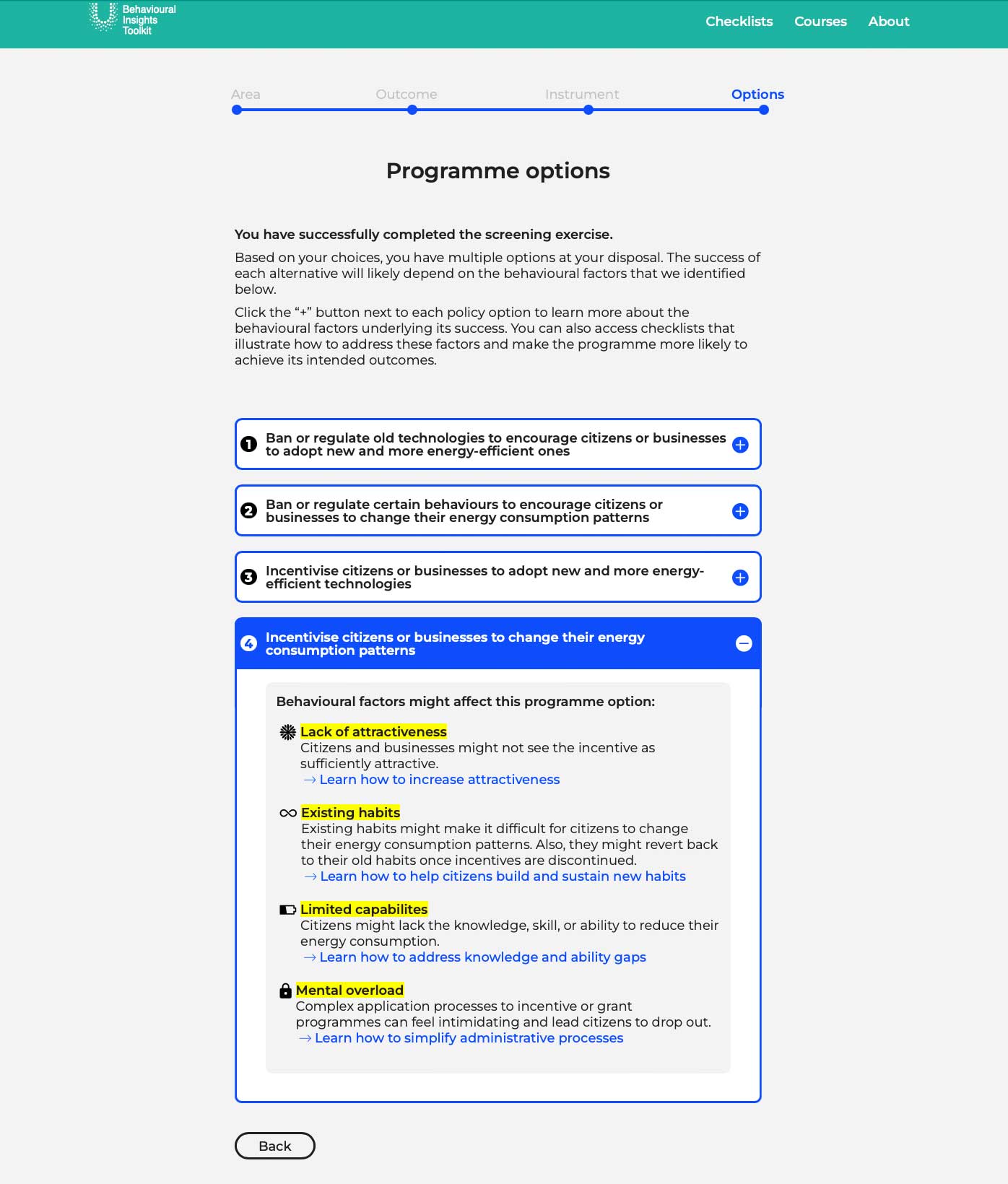
Extract of the online behavioural insights toolkit that we designed for the IEA
A toolkit that improves policymaking using behavioural insights
The online toolkit helps uncover the underlying behavioural assumptions of different energy policy instruments. It is designed to serve policymakers over different stages in the policy cycle, including the development, refinement, and evaluation phases. The toolkit can also act as an intermediary in the exchange between policymakers and behavioural experts. Specifically, it can help policymakers identify potential behavioural challenges and consult with experts to better understand the range of behavioural applications in the energy policy domain. The toolkit is free to use and can be accessed at https://bitoolkit.userstcp.org.



